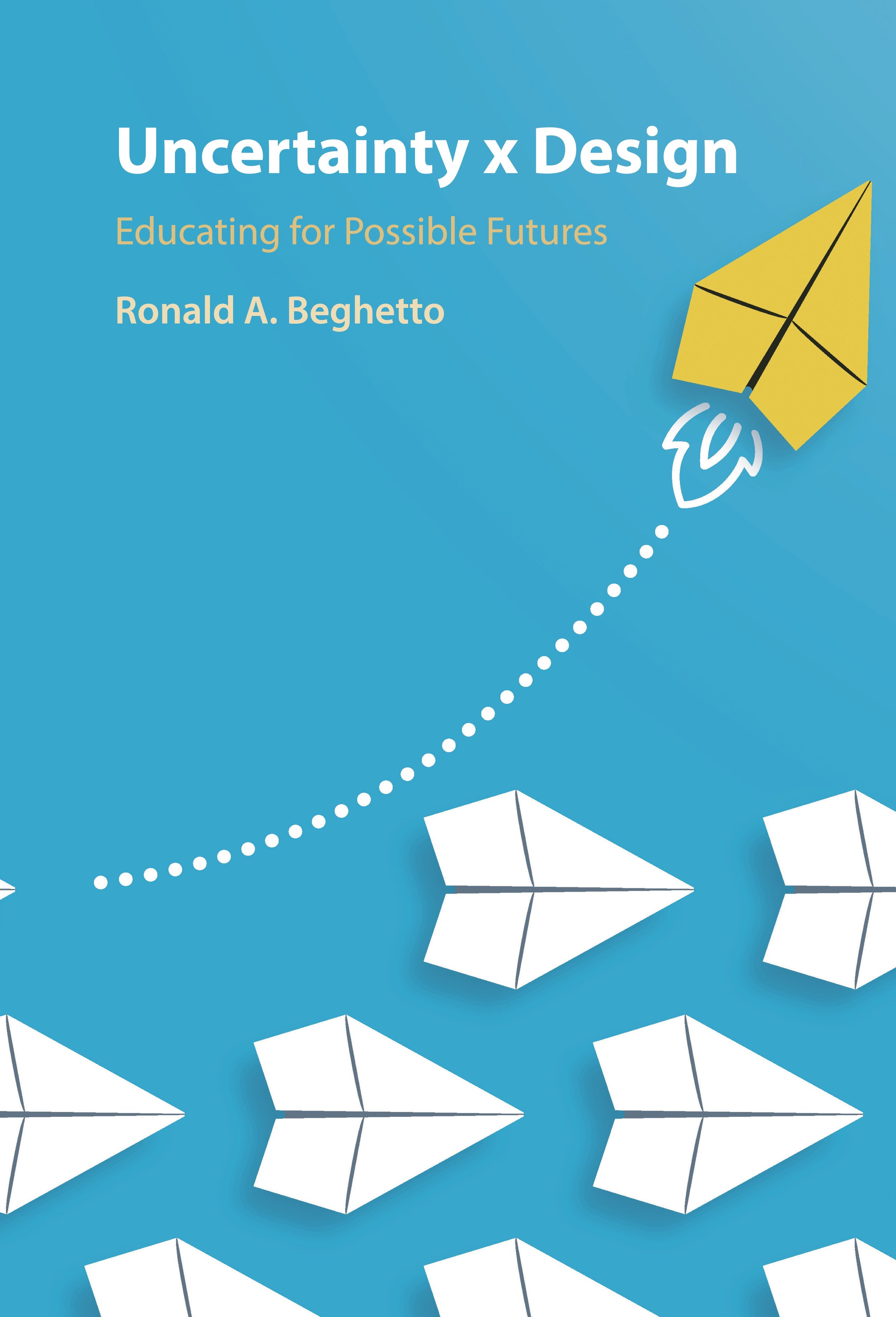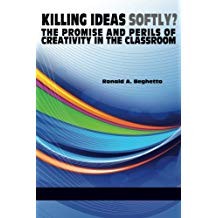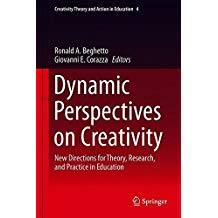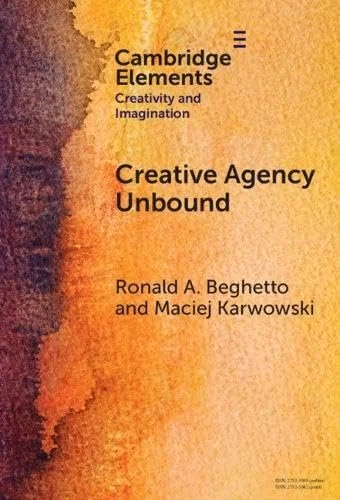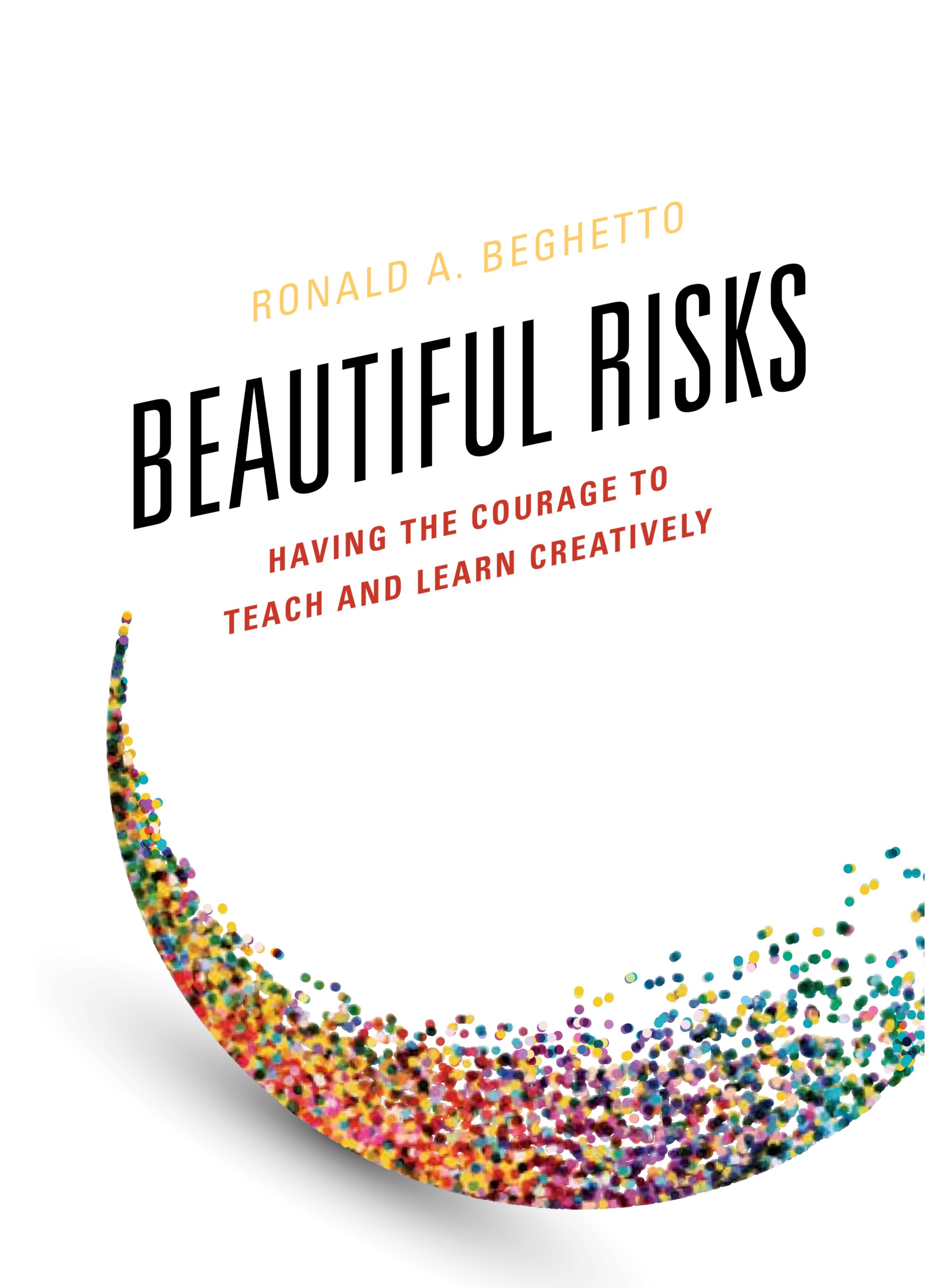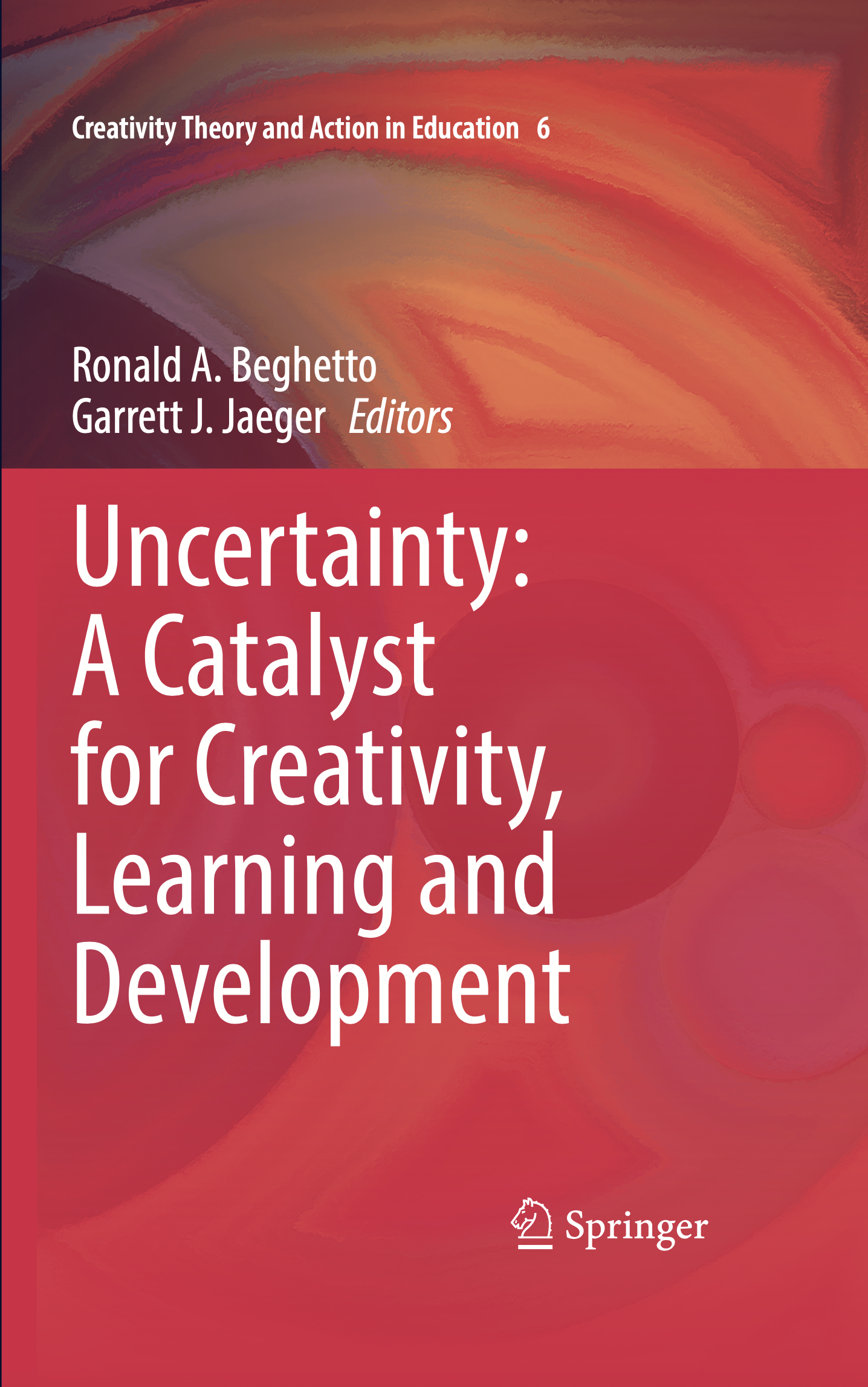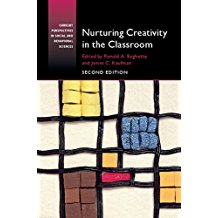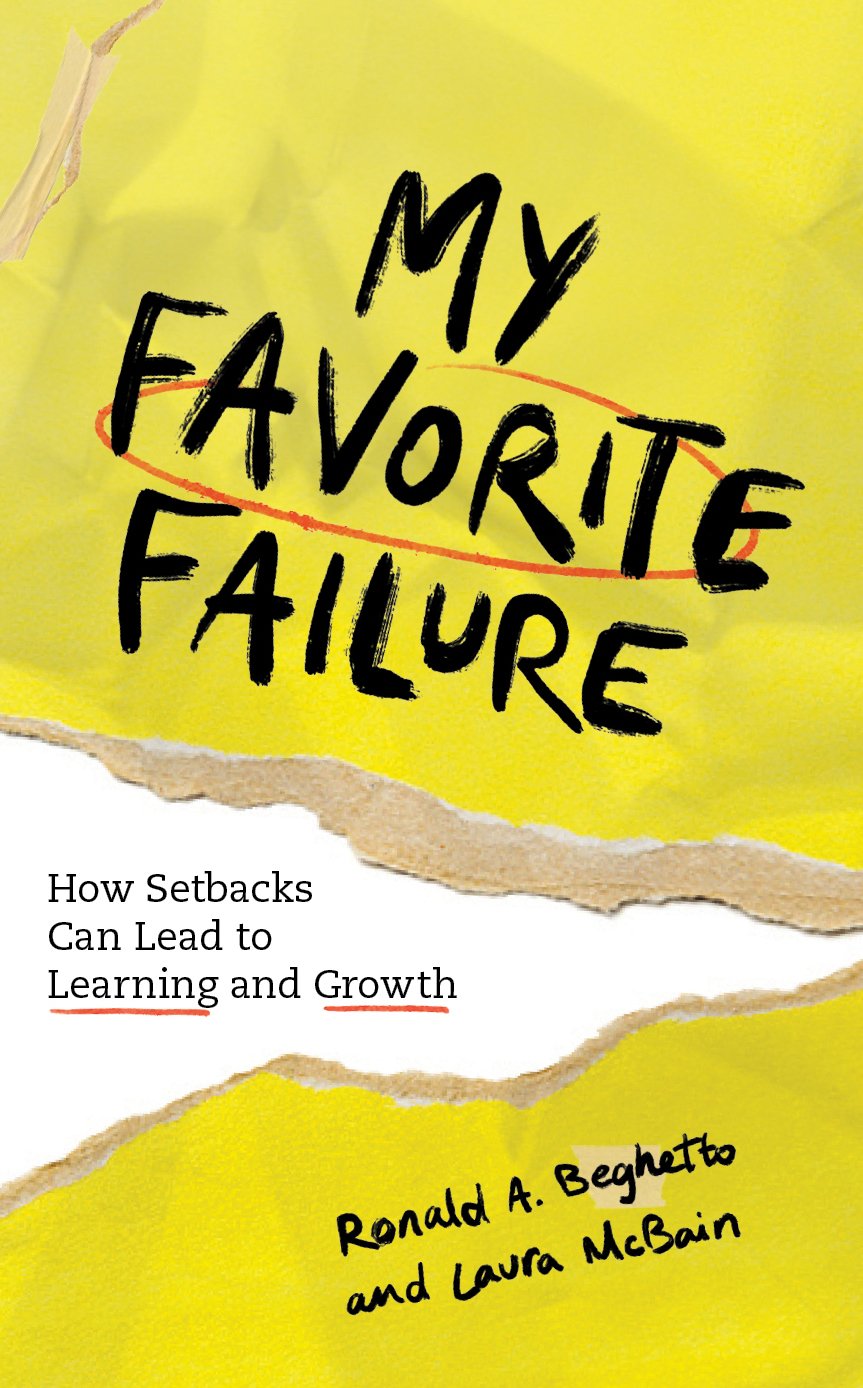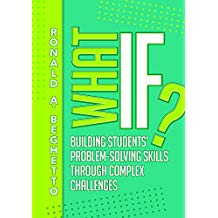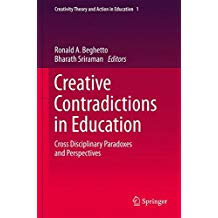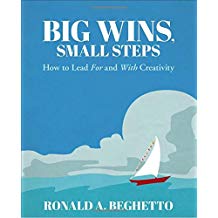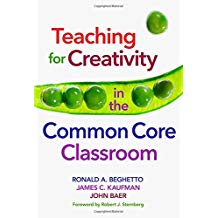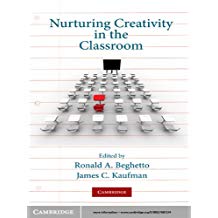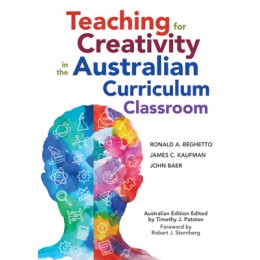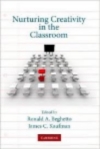BOOKS
📊 Click for Visual Summary Creative Agency Unbound explores how individuals transform creative potential into creative actions. Creative agency refers to the self-directed capacity to envision and enact meaningful changes within contextual constraints. This volume introduces the updated Creative Behavior as Agentic Action (CBAA) model, explaining four key decision points that shape creative engagement: Can I do this creatively? (creative confidence), Should I do this creatively? (creative value), Will I do this creatively? (creative risk-taking), and How will I do this creatively? (creative self-regulation). Each decision and its related self-belief is discussed in successive chapters, integrating theory, research, and practical applications to illustrate how creative self-beliefs motivate creative behaviors. This volume serves as a foundational resource for those seeking to understand, study, and foster the transformation of creative potential into creative action.
How we educate young people has never been more critical. Education faces unprecedented challenges as artificial intelligence disrupts traditional practices, mental health issues among students intensify, and global uncertainties reshape daily life. Many young people are unsure whether they matter or how they can make a difference. This book addresses these challenges by exploring what it takes for students to make a positive impact. Drawing on research, practical examples, and creative dialogue, we explores how young people can become agents of impact in their everyday lives, schools, and communities. We argue that making an impact requires more than passion or intelligence; it demands learning how to strategically manage finite resources like time, energy, and focus. The book presents a vision for schools as collaborative, inspiring communities where every student can thrive, feel they matter, and contribute meaningfully.
Uncertainty is a ‘feature’ of learning and life, not a ‘bug’ in the system. And this book is about helping young people learn how to approach the uncertainty they face in learning and life with an unshakeable sense of the possible. More specifically, this book describes how students can benefit from opportunities to develop their confidence and competence by taking creative action in the face of uncertainty by design. In this way, this book serves as a prolonged exercise in possibility thinking - providing insights, scenarios and applications for educators and researchers committed to supporting young people in embracing uncertainty and becoming the creative authors of their own futures.
Beghetto, R. A. & Jaeger, J. G. (Eds.). (2022). Uncertainty: A catalyst for creativity, learning and Development. Springer.
Learning and life are filled with uncertainty. Although the experience of uncertainty can cause emotional discomfort or cognitive rigidity, uncertainty serves as a catalyst and condition for change. In this way, uncertainty represents a core facet in the interrelationship among creativity, learning, and development. Considerations for both the benefits and potential costs of uncertainty will be addressed in this volume with an aim of understanding how uncertainty can be better understood in light of creativity, learning, and development. Taken together this volume stands to contribute to our collective understanding of the role that uncertainty plays in learning and life and highlights how conceptualizing and studying uncertainty in new ways can promote positive and lasting change.
Beghetto, R. A. & McBain, L. (2022). My Favorite Failure: How Setbacks Can Lead to Learning and Growth. Rowman & Littlefield.
(Click - > Podcast Featuring this Book)
4/14/22, Choice: This book was featured in a roundup of forthcoming titles in psychology.
In education and in design there is a lot of talk about failure. We have taglines like “fail forward,” “fail early and often,” “learn from your mistakes,” “lean into failure,” “have grit,” and even “let’s have a bias toward failure.” However, despite these well-intended phrases, we believe there is still more to understand about what it means to experience failure and learn from those experiences, even (and maybe especially) when those failures are painful. This book, therefore, serves as a resource for students, teachers, parents, coaches and anyone working with young people. By showcasing stories of experiences with failure, this project will highlight how setbacks can lead to a fundamental shift in how we perceive the world, what we learn, and how we operate within our schools, communities and places of work.
Beghetto, R. A. (2019). Beautiful Risks: Having The Courage to Teach and Learn with Creativity. Lanham, MD: Rowman & Littlefield
This book is about knowing when creative action is worth the risk and when it is not. This includes developing the awareness, courage, and confidence to support and take risks when it is beneficial to do so in the classroom. It also includes being able to recognize when certain risks should be avoided. The key is knowing when and how to take creative action in a way that not only makes sense for the situation at hand, but also stands to make a positive contribution to others. The aim of this book is to help you and your students identify the kinds of risks that are worth taking, better anticipate and navigate potential hazards associated with those risks, and maximize the potential benefits.
Beghetto, R. A. (2018). What if? Building Students' Problem Solving Through Complex Challenges. Alexandria, VA: ASCD.
If a fundamental goal of schooling is to prepare young people for an unknowable future, why don't we provide them with structured opportunities to learn how to respond productively to uncertainty? What if we could transform the routine tasks of school into more complex challenges that push student problem solving out into the world? This book provides the insights and tools necessary to help your students respond productively to uncertainty in a range of challenges both inside and outside the classroom.
Beghetto, R. A. (2016). Big Wins, Small Steps: How to Lead For and With Creativity. Thousand Oaks, CA: Corwin Press. {Link}
There is a time and a place for creativity. Creativity is called for when our typical approach no longer works or when we are attempting to improve existing practices. This book introduces a framework that will help instructional leaders respond creatively in everyday teaching and leadership practice.
Beghetto, R. A. (2013). Killing Ideas Softly? The Promise and Perils of Creativity in the Classroom. Information Age Publishing. {link}
Sometimes our best instructional intentions inadvertently suppress student creativity -- resulting in what can be called, "Killing ideas softly." The purpose of this book is to help you become aware of the opportunities and challenges that teacher face when they attempt to teach for and with creativity. The book blends a combination of insights from creativity and educational research, vivid classroom examples, and practical strategies for how teachers can simultaneously support student learning and creativity.
Beghetto, R. A., Corazza, G. (IN PRESS). Dynamic perspectives on Creativity: New Directions for Theory, Research, and Practice. Switzerland: Springer
This edited volume provides a venue for scholars whose work challenges the typical, static conceptions, and methods of studying creativity. More specifically, the book introduces more dynamic definitions, conceptions, and approaches for studying creativity in the context of educational practice. By doing so, it feeds the strong contemporary need for more dynamic conceptions of creativity in educational settings.
Beghetto, R. A., & Kaufman, J. C. (Eds.). (2017). Nurturing Creativity in the Classroom (2nd ED). New York: Cambridge University Press.
The 2nd Edition of Nurturing Creativity in the Classroom provides an updated perspectives and re-examination of practical advice from leading scholars on how to think about and address the challenges of supporting creativity in K12 and college classrooms.
Beghetto, R. A., & Sriraman, B. (2016). Creative contradictions in education: Cross disciplinary paradoxes and perspectives. Switzerland: Springer
This book provides a collection of provocative essays that examine the tensions and contradictions that researchers and educators face when attempting to understand and apply creativity in educational contexts. Contributors to this volume represent a variety of international and disciplinary perspectives. They tackle difficult questions about creativity in education, and attempt to push beyond “what currently is” and explore future possibilities. This includes challenging the orthodoxy of traditional conceptions of creativity in education and , when appropriate, making a case for when to maintain it.
Beghetto, R. A., Kaufman, J. C., & Baer, J. (December, 2014). Teaching for creativity in the Common Core classroom. Teachers College Press
A 2015 Choice Outstanding Academic Title
Creativity and the Common Core State Standards are both important to today’s teachers. Yet, for many educators, nurturing students’ creativity seems to conflict with ensuring that they learn specific skills and content. In this book, we outline ways to adapt existing lessons and mandated curricula to encourage the development of student creativity alongside more traditional academic skills. Based on cutting-edge psychological research on creativity, we debunk common misconceptions about creativity and describe how learning environments can support both creativity and the Common Core, offer creative lessons and insights for teaching English language arts and mathematics, and include strategies for assessing creativity and Common Core learning.
Nurturing Creativity in the Classroom provides a ground breaking collection of chapters by leading scholars who will examine and respond to the tension that many educators face in valuing student creativity but believing that they cannot support it given the curricular constraints of the classroom. The book combines the perspectives of top educators and psychologists for the purpose of generating practical advice for thinking about and addressing the challenges of supporting creativity in the classroom.
Beghetto, R. A., Kaufman, J. C., Baer, J., & Patson, T (2017). Teaching for creativity in the Australian Curriculum classroom. Hawaker Brownlow Education
Teaching for Creativity in the Australian Curriculum Classroom explains how educators can adapt existing lessons and mandated curricula to encourage the development of student creativity alongside more traditional academic skills
Books Forthcoming
Beghetto, R. A. (Ed.). (in preparation). Oxford Handbook of AI and Creativity in Education. Oxford University Press.
This Handbook comes at a critical moment in education, as generative AI rapidly transforms learning environments and creative processes. Bringing together leading international scholars and diverse perspectives, it provides a comprehensive resource that will shape the future of AI in education across diverse contexts. This volume examines the multifaceted relationship between human creativity and AI, exploring the potential of AI to serve both as a tool for enhancing creative expression and a catalyst for reimagining pedagogical approaches. The Handbook provides a comprehensive overview of the evolving landscape, addressing widely used AI systems as well as emerging AI-powered tools and frameworks that focus on creativity assessment, enhancement, and creative teaching and learning. The volume also examines ethical considerations and unintended consequences of using GenAI to augment human creativity in education.
Beghetto, R. A. & Kaufman, J. C. (Eds.) (under contract). Varieties of Human Creativity: Reflections and Debates on the Four C Model of Creativity. Cambridge University Press.
In Varieties of Human Creativity, leading international scholars offer their perspectives on the Four C Model of Creativity and the nature of creativity itself. The volume will provide a current overview of the model, addressing common questions and concerns from researchers and broader audiences. Using the Four C model as a foundation, contributors will offer their own unique critiques, connections, and applications across three sections: Conceptualizations, Applications, and Extensions. The book will conclude with an integrative summary, highlighting key themes, discussing implications for theory and practice, and proposing an agenda for future exploration.
BOOK SERIES
Beghetto, R. A. & Sriraman, B. (Series Editors). Creative theory and action in education. Springer. {Link here for more information}
Educational settings represent sites of creative possibility. They also represent the manifestation of some of the most persistent and dogmatic beliefs about teaching and learning. This series aims to push the frontiers of creativity theory, research, and practice in educational settings. Specifically, this series endeavors to provide a venue for disseminating the kinds of provocative thinking and cutting-edge research that can promote more creative approaches to teaching and learning. We welcome proposals for edited and authored volumes that provide provocative and original explorations of creative theory, methodology and action in educational settings.
